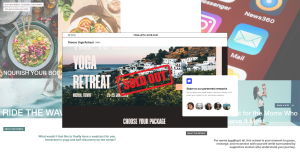Hosting successful events requires understanding your audience, establishing clear goals, and meticulous planning. Emphasize a well-structured sequence of events and actions to develop a strong event strategy.
This method not only aids in accomplishing your goals but also guarantees a memorable experience for all attendees, leaving a positive impression on communities and organizations worldwide.
Key Points:
- An effective event strategy should create enthusiasm among attendees, making them eager to participate.
- Identifying and communicating the event’s purpose helps connect attendees to the event’s mission and each other.
- Mapping the attendee journey ensures that engagement opportunities align with event objectives, maximizing the impact.
- Prioritizing an event’s value is crucial for event strategists to ensure participants are satisfied and benefit from the experience.
Creating a Strategic Event Plan:
- Additionally, it is crucial to consider the logistics of the event, such as venue selection, technology needs, and catering options. Ensuring these elements are well-coordinated can significantly enhance the overall experience and returning investors.
- Start by gathering input from various stakeholders to establish the event’s purpose and goals.
- Incorporate attendee motivations by understanding their expectations and aligning them with your brand.
- Ensure that every aspect of the event experience reflects your business, brand, and audience.
Mapping the Attendee Experience:
- Engagement is another key aspect of a successful event. Interactive sessions, networking opportunities, and engaging content can keep attendees interested and involved. Using social media and event apps can also help to maintain excitement and facilitate communication before, during, and after the event.
- Transform the event vision into a roadmap of milestones that guide attendees through impactful moments.
- Customize communications at every touchpoint to engage attendees effectively.
- Implement a robust event measurement plan to track success metrics and adjust strategies accordingly.
Maximizing Event Impact:
- Take the time to develop a comprehensive event strategy to receive valuable feedback and measurable results that demonstrate the event’s success.
- Moreover, always have a contingency plan in place. Unexpected challenges can arise, and being prepared to handle them smoothly will reflect positively on your event management skills.
- Finally, gather feedback from participants to understand what went well and where improvements can be made. This valuable insight will help you refine your approach for future events, ensuring they are even more successful and enjoyable for everyone involved.
Crafting a memorable and effective event experience is essential for creating lasting impressions and fostering strong connections among attendees. To achieve this, start by understanding your audience and their expectations. Tailor the event’s theme, activities, and presentations to resonate with their interests and needs.
Craft an event that not only achieves its goals but also leaves a lasting, positive impact on all participants by following these steps.
Engaging Content and Activities:
- Curate a mix of sessions, workshops, and interactive activities to keep attendees engaged, showing off and spreading the word on social media. and interested throughout the event.
- Bring in dynamic speakers and industry experts who can provide valuable insights and spark meaningful conversations.
- Incorporate entertainment and networking opportunities pre-event to add an element of fun and facilitate social connections among attendees.
- Don’t forget the power of storytelling. Weave a compelling narrative throughout the event that ties all the elements together and reinforces the core message. This can be achieved through keynote speeches, video presentations, and personal anecdotes from speakers and attendees.
Leveraging Technology:
- Utilize event management software to streamline planning, registration, and communication processes.
- Implement live streaming and on-demand content options to reach a broader audience, even those who cannot attend in person.
- Use mobile apps to provide real-time updates, personalized agendas, and interactive maps to enhance the attendee experience.
Post-Event Follow-Up:
- Gather feedback from attendees through surveys and direct communication to understand what worked well and identify areas for improvement.
- Share highlights, recordings, and key takeaways with participants to extend the event’s value and keep the conversation going.
- Analyze data and metrics to measure the event’s success and inform future planning efforts.
Building Long-Term Relationships:
- Foster a sense of community by creating online groups or forums where attendees can continue networking and sharing ideas.
- Offer exclusive content or early access to future events as a way of showing appreciation and maintaining engagement.
- Stay connected with attendees through regular updates, newsletters, and invitations to upcoming events and activities.
By following these steps and continuously fine-tuning your approach, you can craft a successful event strategy that not only meets but exceeds the expectations of your attendees. The key is to remain flexible, listen to feedback, and always prioritize the attendee experience.
Through thoughtful planning and execution, your events will leave a lasting impact and build stronger connections with your audience.







